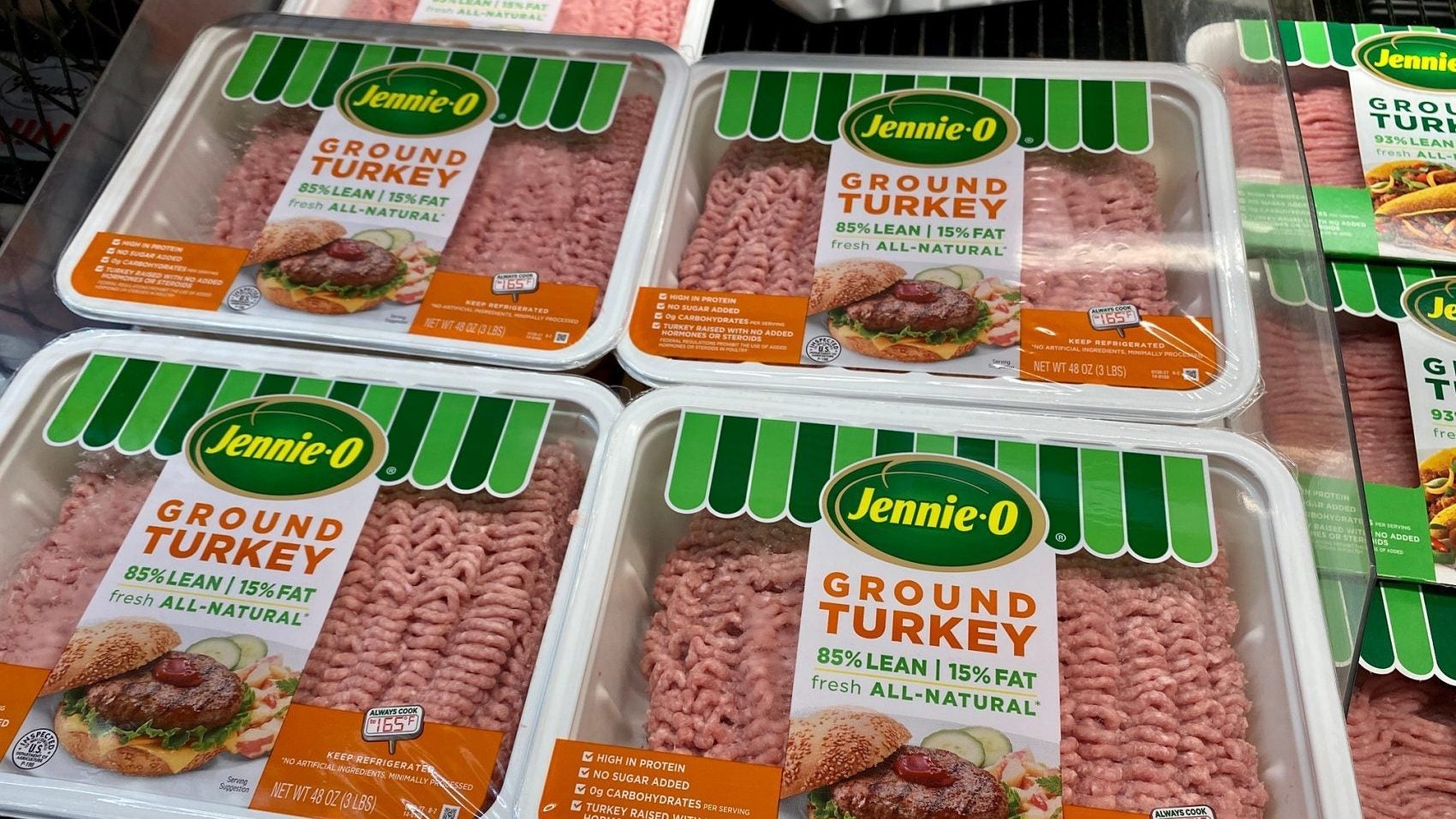
US-based Hormel Foods has not committed to ending pricing activity but the Skippy peanut butter and Spam canned meat owner said it is keeping a close eye on consumer behaviour.
Speaking to analysts after the release of its Q4 and fiscal-year 2023 results yesterday (29 November), Deanna Brady, the company’s executive vice president, retail, said: “We’ve had a lot of pricing over the last two years. A lot of that pricing has been reactive. And as we sit here today, we are in a position to be thinking about it proactively.”
One thing that could inform any decisions Hormel makes on pricing will be the company’s sales figures. The Austin, Minnesota-based company posted sales of $3.2bn in the fourth quarter, ended 29 October, down 2.6% year-on-year. Full-year sales were down 2.8% at $12.11bn.
Its earnings were also down. EBIT for Q4 fell by 19.2% compared to the previous year, at $245.8m, while over the full year they were 11.9% down at $1.01bn.
Reflecting on its performance, the Planters nuts and Jennie-O Turkey Store brands owner’s CEO Jim Snee said: “Fiscal 2023 was a challenging year for the organisation as we navigated an environment that remained volatile, complex and high cost; regardless, our results did not meet our expectations.”
He added that the period was : “a particularly challenging year for our international business due to softness in China, weak commodity markets and higher-than-expected elasticities on our branded export business.”
Access the most comprehensive Company Profiles
on the market, powered by GlobalData. Save hours of research. Gain competitive edge.

Company Profile – free
sample
Your download email will arrive shortly
We are confident about the
unique
quality of our Company Profiles. However, we want you to make the most
beneficial
decision for your business, so we offer a free sample that you can download by
submitting the below form
By GlobalData
On consumer elasticity more generally, Brady said: “We’ll also be thinking about what is our long-term ambition and what are the needs for us to be able to invest into these brands to continue to grow. And so, some of that will require some consideration in regards to pricing so that we can have additional dollars for trade as well as advertising and innovation.”
But she added: “It’s important that we take those elasticities very seriously because they are moving and moving pretty quickly. The other factors that we’re thinking about is our position in the category. And definitely at this point, we’ll be more targeted and surgical about our reaction.”
Snee added: “We have to be thoughtful about what levers [we pull] and how we’re pulling them, when we think about pricing, when we think about promotion, when we think about advertising, making sure that we are connecting with that consumer to drive the demand. But we also understand the amount of pricing that’s gone into all these categories over the last couple of years and it’s been very, very significant. And I don’t believe that consumers have fully digested all of the pricing that has come through.”
In June, Hormel defended its pricing actions as it planned further increases.
Looking forward, Hormel forecast fiscal year 2024 net sales to be in the range of $12.2bn to $12.5bn.
In the company’s results announcement, Snee said: “We expect fiscal 2024 to be a year of investment, consistent with the plan we outlined at our recent investor day. We remain focused on our strategic priorities, executing on our transformation and modernisation initiative, fuelling our innovation pipeline and exiting the year with momentum in our business segments.
“I remain confident that we have the right brands, strategy, people and culture to deliver on our commitment to improve our business and drive long-term shareholder returns and growth.”

